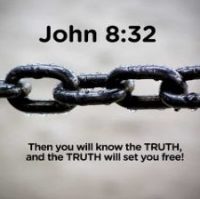 Because a large number of churches opt for “user friendly” sermons and no longer teach the essentials of the faith on a regular basis “most who attend such a church are prey for cults and false teachers who use similar terms with different definitions to pull the unwary away from the faith,” caution Don and Joy Veinot over at Midwest Christian Outreach. For example, when it comes to The Trinity, we must watch out for definitions that sound close to the truth but in fact lean into heresy. Speaking of the Trinity, the Veinots warn us to watch out for organizations such as WND (WorldNetDaily) for the following reason:
Because a large number of churches opt for “user friendly” sermons and no longer teach the essentials of the faith on a regular basis “most who attend such a church are prey for cults and false teachers who use similar terms with different definitions to pull the unwary away from the faith,” caution Don and Joy Veinot over at Midwest Christian Outreach. For example, when it comes to The Trinity, we must watch out for definitions that sound close to the truth but in fact lean into heresy. Speaking of the Trinity, the Veinots warn us to watch out for organizations such as WND (WorldNetDaily) for the following reason:
[S]ome organizations which represent themselves as Christian media promote and sell false teaching online. A book such as Joe Kovacs’ Shocked by the Bible and The Divine Secret, promoted and sold by WorldNetDaily, is little more than an updated version of the false teachings of Herbert W. Armstrong who denied the deity of Christ and doctrine of the Trinity – and promulgated many other false teachings. Even though this has been brought to the attention of the leadership of WorldNetDaily privately and publicly, it has fallen on deaf ears. Unlike Moody, they appear to be uncorrectable.
Links are provided that demonstrate that WND has been made aware of Kovacs’ heretical teaching on the Trinity. Sadly, WND publisher Joesph Farah has ignored the warnings (More on Joe Farah below). So in light of the fact that the popular website’s executive news editor’s teaching on the Trinity is heretical, plus Farah promotes other authors whose teaching is decidedly unbiblical, we have no choice but to urge our readers to stop using WND as a resource.
Now to Don & Joy’s revealing article that begins with a disturbing report on Moody Bible Institute:
Few realize how subtly doctrinal drift occurs. It often isn’t a jump from sound teaching and belief in the essentials of the faith to all out denial but is a slight lean from one to the other. It comes with a slight change in wording or application of a new definition which makes an aberrant view sound acceptable. Julie Roys publicly raised this issue regarding Moody Bible Institute last month after spending a great deal of time trying to dialogue with the leadership at MBI. One of the issues was inerrancy. In her article, Moody Bible Institute Takes Bold Step to Affirm Biblical Inerrancy we see the impact of redefining terms:
Yet as I reported last month, two Moody professors last year admitted in a Bible/Theology Division meeting that while they affirmed Moody’s doctrinal statement, they rejected the Chicago Statement, as well as what’s known as a “correspondence view of truth.”
It was a slight lean but was sufficient to demonstrate under scrutiny that they didn’t actually affirm Moody’s doctrinal statement after all. Would anyone have caught the subtle shift had Julie not brought it to public attention? It’s hard telling because although the professors seemingly affirmed the statement no one thought to ask them how they defined “truth.” This is not a new problem but has been with us since the beginning of the church, and truth be told, we see it throughout the Old Testament as well. Much of the New Testament was written to correct false teaching and lay down clear definitions of belief, including Early Church Creeds such as 1 Corinthians 15:3-7. The Church Councils formulated Creeds to clarify the essentials of the faith which were being subtly corrupted by false teachers. As we look at the creeds, they went from the simple statements of the Nicene Creed (325) to longer more detailed statements of the First Council of Constantinople (381, see comparison). By the time we get to the Athanasian Creed it is longer, more detailed and includes definitions which would prevent false teachers from co-opting the language by redefinition. Although it addresses the humanity of Christ, the bulk of the Athanasian Creed focuses on the deity of Christ, the nature of God (One True God) and the relation of the three persons (Trinity) who share that nature. Reviewing this issue in light of recent revelations and discussions, Julie Roys points out:
Moody also announced that it is revising its doctrinal statement regarding the Trinity. The revision adds that God is “three co-equal Persons” and that “these divine Persons, together possessing the same eternal perfections, work inseparably and harmoniously in creating, sustaining and redeeming the world.”
Resources
A Shocking Lack of Discernment: Promoting the Heresies of Herbert W. Armstrong